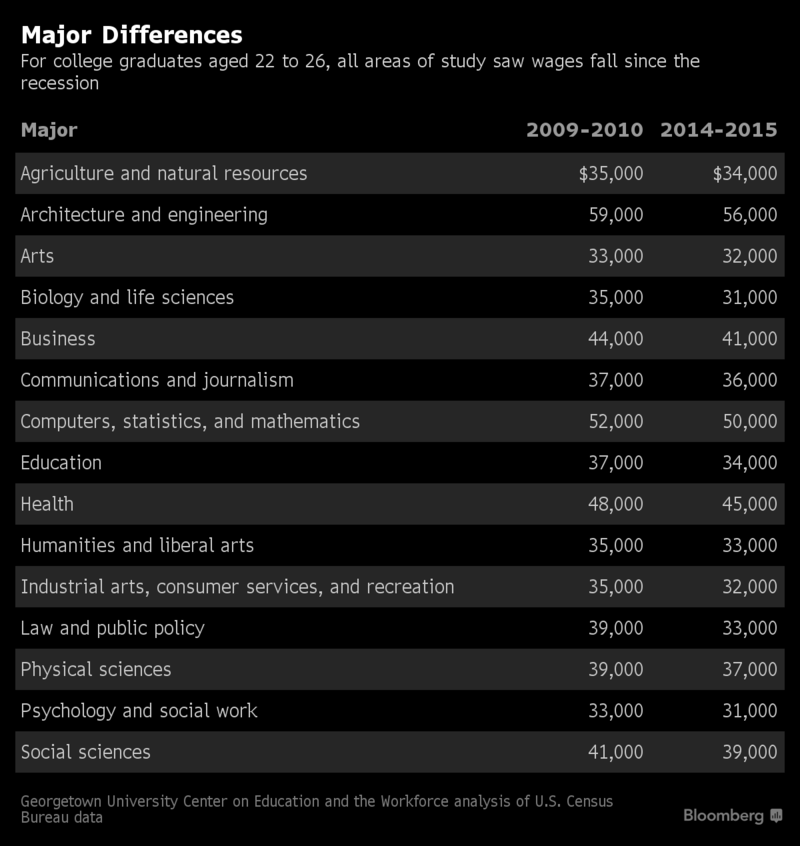Many U.S. college graduates’ wages have fallen since Recession
While a Bachelor’s Degree is a prerequisite to most good-paying jobs these days, many college graduates have not seen their incomes increase since the 2007-09 recession, a new study finds.
Wages for college graduates across many majors have fallen since the recession, according to an unpublished analysis by the Georgetown University Center on Education and the Workforce in Washington using Census bureau figures, as reported by Bloomberg.
Wage growth depends on college major
The biggest factor in whether or not wages increased was a college graduate’s major, the study found.

College graduates in most fields have seen their wages decrease since the 2007-09 recession. [Chart: Bloomberg]
For example, the average entry-level business major made $44,000 in 2009-2010, versus $41,000 in 2014-15. A law and public policy major made only $33,000 in 2014-15, down $6,000 from $39,000 in 2009-10.
The trend continued for college graduates later in their careers as well, with a few exceptions. Graduates in technical fields like engineering saw their wages rise, while those in the physical sciences, education and law and public policy all experienced wage decreases since the end of the recession.
You need more than a degree to succeed
So does this mean a college degree isn’t worth the cost?
Far from it — as long as you don’t overpay for college and consider the school’s return on investment before taking out student loans.
What it means is that it’s more important than ever to maximize your experiences during college, such as doing internships and taking extra classes in order to build up your job skills and gain connections that will help you once you graduate.
As Jeff Selingo, who writes about higher education and is a professor of practice at Arizona State University, puts it,
Just getting a degree doesn’t matter anymore. What matters more are the undergraduate experiences that you have.
It also means it’s important to avoid taking on enormous debt to pay for college, since your entry-level (and possibly mid-career salary) may not be high enough to afford your student loan payments.
